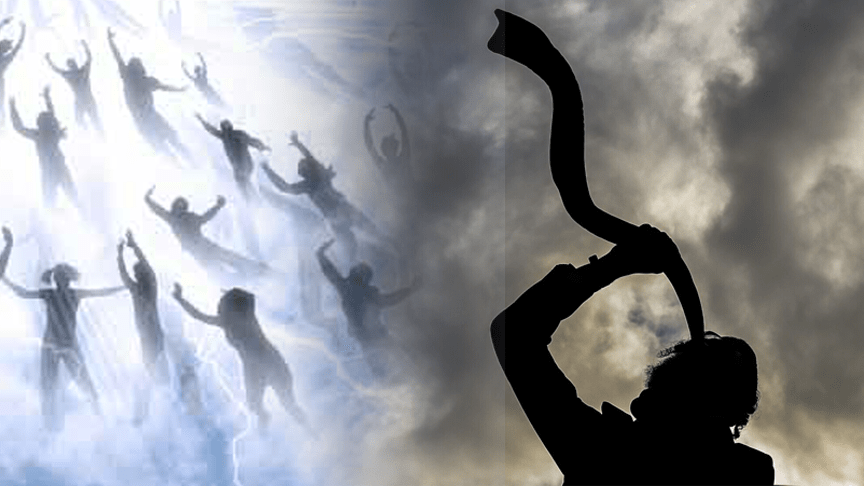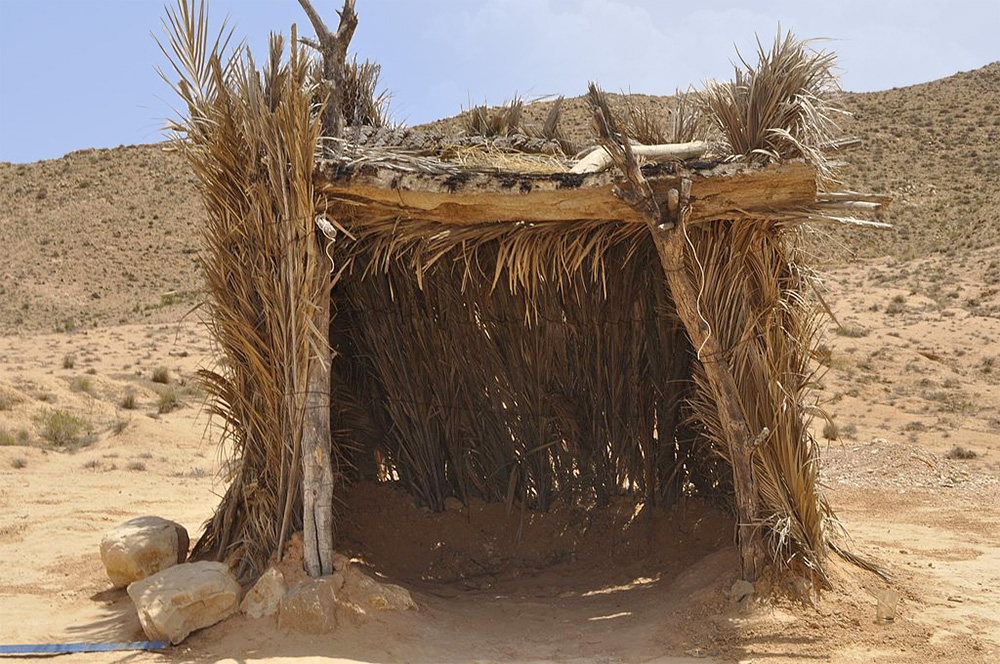 Each year, the end of summer means the Jewish High Holy Days are just around the corner. Rosh Hashanah (Jewish New Year), Yom Kippur (Day of Atonement) and Sukkot (Feast of Tabernacles) are upon us. These Fall feasts are very meaningful to the Jewish people and have great significance, prophetically speaking. When we look at Leviticus 23, we can see all the feasts of the Lord given to the children of Israel in a particular order. All six feasts (or seven feasts, since some people separate Passover and Unleavened bread) are called yearly convocations and are divided into two distinct categories:
Each year, the end of summer means the Jewish High Holy Days are just around the corner. Rosh Hashanah (Jewish New Year), Yom Kippur (Day of Atonement) and Sukkot (Feast of Tabernacles) are upon us. These Fall feasts are very meaningful to the Jewish people and have great significance, prophetically speaking. When we look at Leviticus 23, we can see all the feasts of the Lord given to the children of Israel in a particular order. All six feasts (or seven feasts, since some people separate Passover and Unleavened bread) are called yearly convocations and are divided into two distinct categories:
Spring Festivals
• Pesach – Passover: Leviticus 23:4-8
• First Fruits: Leviticus 23:9-14
• Shavuot – Pentecost: Leviticus 23:15-21
Fall Feasts
• Rosh Hashanah: Leviticus 23:23-25
• Yom Kippur: Leviticus 23:26-32
• Sukkot: Leviticus 23:33-44
We can also derive a prophetic significance from these festivals, as they pertain to the redemptive career of Yeshua the Messiah. This can be both a blessing AND a curse depending on how we establish the prophetic connection and how much we assume. The study of biblical prophecy can suffer from friends and foes, and yet, it is critical that as modern-day disciples of Yeshua, we study the prophetic words of the Bible. The connections exist, and they are strong.
The Spring Festivals have been fulfilled by the First Coming of Yeshua the Messiah:
• Passover: Leviticus 23:4-8 – Death of the Messiah (Isaiah 53:5-8; 1 corinthians 5:7-8)
• First Fruits: Leviticus 23:9-14 – Resurrection of the Messiah (1 Corinthians 15:14, 17, 20-24)
• Pentecost: Leviticus 23:15-21 – Birth of the Body of Messiah (Exodus 19:1, 3-8, Acts 2:1-4)
Prophetically speaking, these festivals are behind us, and there are three more to look forward to. They are known as the Fall Feasts and,
The Fall Feasts will be fulfilled at the Second Coming of Yeshua the Messiah:
• Rosh Hashanah: Leviticus 23:23-25 – The Regathering of the Saints (Isaiah 27:12-13 – 1 Thessalonians 4:13-18; 1 Corinthians. 15:15-58)
• Yom Kippur: Leviticus 23:26-32 – The Great Tribulation (Ezekiel 36:24-25; Zechariah 13:8-9, 12:10, 2 Corinthians 5:10)
• Sukkot: Leviticus 23:33-44 – The Ingathering of the Messiah and the Believers (John 7:38-39, 8:12; Zechariah 14:16-19; Matthew 17:4)
Based on several biblical reasons–the Levitical Feasts of the Lord not being the least of them–I adhere to a pre-tribulational, pre-millennial view of the end times. In other words, Rosh Hashanah comes before Yom Kippur, which comes before Sukkot, so logically and biblically, we can look at the Regathering of the Believers, the Great Tribulation and the Millennial Kingdom in that order. These connections can be made on a biblical foundation, but how does that help us with the timing of the Rapture, or does it?
More books, articles and videos have been produced to prove that the Rapture will take place on Rosh Hashanah that I can count. There is no doubt that people are very interested in the Rapture, and they should, but can a date be set? The extent to which people go to calculate the date of the Rapture is mind-boggling. Let’s try to connect some dots.
• Connection between Rosh Hashanah and the Rapture:
The Blowing of the Trumpet in 1 Thessalonians 4:13-18
Paul’s Jewish audience couldn’t have known about the trumpets of Revelation since the book had not been written when he addressed the Corinthians. They would know about the last trumpet of Rosh Hashanah, known as the “Tekiah Gedolah.” When God brings an end to the Church age–which is the fulfillment of the interval of several months between Shavuot and Rosh Hashanah (Leviticus 23:22)–He will send Yeshua to gather the saints (dead and alive.) Shofars were used to call to battle, announce a new moon or call a gathering of people. So, there is a thematic connection between the Last Trump and the Rapture since it will be the time chosen by God to regather the Saints to Himself.
• Assumption between Rosh Hashanah and the Rapture:
Because of the Last Trumpet connection, many have come to place the Rapture on Rosh Hashanah, using other “proofs” from numerology, Talmudic writings and other sources. Could the Rapture happen on Rosh Hashanah? ABSOLUTELY! But, if it does, it will not be BECAUSE it is Rosh Hashanah, but because that will be the day God has picked in His infinite wisdom.
If we seek passages about Yeshua’s return to get us, we cannot find a specific date, so the Rapture is signless. Nothing needs to happen before the Rapture takes place…NOTHING! We know that Yeshua is preparing a home for us and that He will return to get us all as we read in Yet, the Bible doesn’t tell us when by date, but it tells us that it will be before Yom Kippur since Rosh Hashanah always comes ten days before the Day of Atonement.
Rabbis teach that the fate of all Jews is decided on Yom T’ruah (The Day of Trumpets), but it isn’t sealed until Yom Kippur. This is a time of introspection and repentance when Jewish people go out of their way to seek forgiveness from anyone they might have hurt throughout the year. The sabbath that falls within these ten days is known as Shabbat Shuvah (the Sabbath of repentance.)
An event in Yeshua’s redemptive ministry doesn’t have to happen on the exact day of a feast to fulfill that feast, but the event’s meaning and symbolism suffice to fulfill one of the Levitical feasts. That will be true for the Rapture, the Tribulation and the Millennial Kingdom. If Rosh Hashanah, the Great Tribulation and the Millennial Kingdom are the fulfillment of the last three Fall feasts, while they do not require to happen on the exact day of each feast–but they could–they still will occur in the immutable order of the feasts found in Leviticus 23: Yom Teruah, Yom Kippur and Sukkot…That we know!
So, the real question is not “When will the Rapture take place?” but, “When the Rapture takes place, am I going to be taken up or left behind?”
If you have placed your trust in the death and resurrection of Yeshua the Messiah for your sins, you have eternal life in God’s presence and YOU WILL BE RAPTURED. Don’t speculate on dates that cannot be calculated, but invest your time in boldly sharing our hope in Yeshua with the lost. You never know… The Rapture could happen before, during, or after Rosh Hashanah, but after it happens, our influence on those who don’t know Yeshua will be gone. Let’s use the time we have left wisely.

